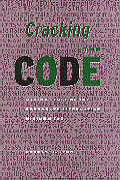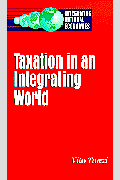This article was originally posted on the Boston Herald on Jan. 4, 2017.
While almost everyone agrees that the current U.S. system for taxing foreign profits of American corporations is counterproductive, there has been heated partisan debate about what should be done. Now, with Republican dominance of Congress and the White House, we should look carefully at House Speaker Paul Ryan’s path-breaking plan for corporate tax reform
Under current law, foreign profits of American corporations are legally subject to a 35 percent U.S. tax — the highest corporate tax rate among industrialized countries. In fact, American corporations do not pay this tax unless and until they bring these foreign profits back to the U.S.
Thus, the current system mainly benefits tax lawyers and accountants.
U.S. companies hold abroad approximately $2.5 trillion in past foreign profits. The U.S. Treasury collects little revenue from foreign profits, and U.S. corporations are discouraged from investing those profits back in this country.
For years, many Republicans advocated a “territorial” system — whereby U.S. corporations would be taxed on their profits only in the country where they were earned. That system would be disastrous for the U.S. economy: American corporations would have a strong incentive to locate their physical facilities and intellectual property in countries with very low tax rates, like Bermuda or Singapore.
In response, Ryan has cleverly put forward a plan for “border adjustments.” Under this plan, all exports produced in the U.S. would be exempt from U.S. corporate taxes. This exemption would obviously minimize the incentive for U.S. corporations to move production outside our borders.
In the same spirit, the Ryan plan would prevent U.S. corporations from deducting inputs imported from other countries. For example, if Wal-Mart sourced its sneakers from China, it could not deduct their cost in computing Wal-Mart’s corporate tax. This aspect of Ryan’s plan is vehemently opposed by U.S. retailers and other U.S. companies that rely heavily on foreign imports in making their products sold in the U.S.
Some commentators have emphasized that the non-deductibility of imports would also result in large price increases for U.S. buyers of goods with a lot of imported content. If U.S. firms have to pay U.S. taxes on higher profits as computed under the Ryan plan, so the argument goes, these firms will pass on these taxes as price increases to consumers.
But other economists maintain that such price increases will not occur, because exchange rates for currencies should, in theory, adjust to reflect the different treatment of exports and imports. Specifically, the dollar price of imports should fall. In practice, we do not know what would happen to currency rates under the Ryan plan.
Moreover, this different treatment of exports and imports will surely be challenged as discriminatory in violation of the rules of the World Trade Organization. These rules allow border adjustments in the context of the value-added taxes, or VATs, used by most European countries.
However, the Ryan plan in its current form is not likely to qualify as a VAT for various reasons.
In short, the Ryan plan is a bold effort to reform corporate taxes in a way to keep more facilities and jobs in the U.S.
Nevertheless, it will have to be modified in order to overcome political opponents at home and trade critics abroad.
Robert Pozen has been a nonresident senior fellow at Brookings since 2010. In 2015, he generously committed to endow the Director’s Chair for the Urban-Brookings Tax Policy Center. Until 2010, Pozen was executive chairman of MFS Investment Management and, before 2002, served in various positions at Fidelity Investments. He did not receive financial support from any firm or person for this article or from any firm or person with a financial or political interest in this article. He is currently not an officer, director, or board member of any organization with an interest in this article.
The Brookings Institution is committed to quality, independence, and impact.
We are supported by a diverse array of funders. In line with our values and policies, each Brookings publication represents the sole views of its author(s).








Commentary
Op-edPaul Ryan preps bold corporate tax plan
January 4, 2017